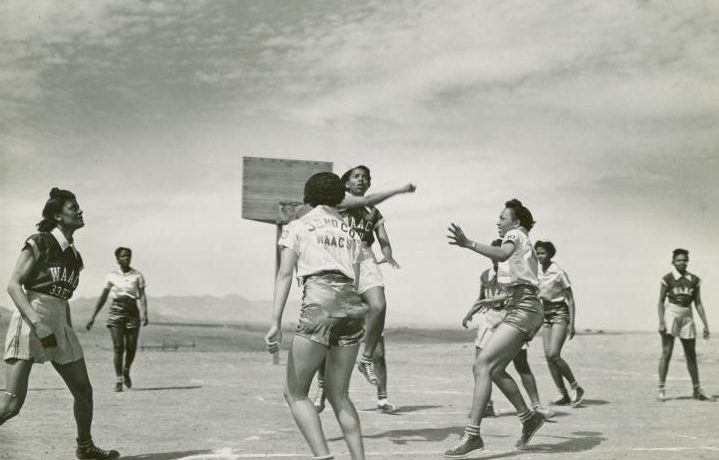After playing in the 2018 Women’s National Basketball Association (WNBA) season, Minnesota Lynx Maya Moore announced that she would take a break from her professional basketball career to focus on reforming the nation’s justice system. For those who may not know: Moore is a league MVP, the WNBA Finals MVP, a five-time all-star, a four-time WNBA champion, two-time Olympic gold medalist, and a two-time NCAA champion from the University of Connecticut. Moore, who had been the face of the WNBA, recently helped exonerate Jonathan Irons, a Black man wrongfully convicted of burglary and assault in 1998.
Following Moore’s lead, other Black women basketball players have opted out of the 2020 season to fight for racial equality including Renee Montgomery, Tiffany Hayes, Chiney Ogwumike, and Natasha Cloud. Unlike NBA players whose contracts are guaranteed and whose salaries are vastly larger than those of WNBA players, these women are not only sacrificing their careers but also the limited financial security afforded to them during the season.
In the WNBA, where Black women are 74% of the players, and in NCAA Division I women’s basketball where Black women are 51% of the players, it is important to center gender in ongoing conversations about race, social justice, and sports. Achieving that goal means developing a deeper understanding of the longer history of Black women athletes’ social protest and the unique challenges they have faced. Too often, sports journalism and sports historiography have overlooked Black women’s contributions to political activism and sport. The popular iconography of Black men like Jesse Owens, John Carlos, Tommie Smith, and Muhammad Ali have long overshadowed the contributions of Black women sports activists such as Eroseanna “Rose” Robinson, a track athlete and high jumper from Chicago.
Before Colin Kapernick, Robinson refused to stand for the “Star-Spangled Banner” at the 1959 Pan Am Games. As Dr. Amira Rose Davis has pointed out, Robinson publically decried the United States using sports and Black athletes as propaganda apparatus to combat accusations of racism from the Soviet Union. Robinson’s political ideals and militant protest eventually led to her arrest for tax evasion. As the Daily Defender reported in 1960, during her first court appearance she publically stated, “I am against my money being used for war purposes.” After three court appearances, Robinson was sentenced to a year and a day for contempt of court after refusing to file her income taxes. While imprisoned, Robinson went on a hunger strike that gained national attention as protests occurred outside of the federal building in solidarity with Robinson. After serving her sentence, Robinson continued her social and political activism alongside a pacifist group called the Peacemakers, where she fought for racial equality and the American war tax resistance movement. Unfortunately, she would never return to the world of sport; her body never fully recovered from the hunger strike she led while imprisoned. Robinson’s experiences offer us a glimpse into the consequences Black athletes faced in standing up for their values, at the same time that unearthing her history spotlights their larger erasure.
Despite the unprecedented accomplishments of Black female athletes like Willye White and Wyomia Tyus during the 1968 Olympics, their contributions have been obscured by what became one of sport’s most iconic moments. Tommie Smith’s and John Carlos’s 1968 Olympic protest became one of the most highlighted moments of the Black Power movement. When Wyomia Tyus made history as the first person to ever win two consecutive gold medals in the 100m run, she dedicated one of her medals to Smith and Carlos after hearing that the Olympic Committee would strip them of theirs. When Willye White became the first and only American track athlete to participate in five consecutive Olympic games, she criticized the Olympic Committee and Harry Edwards, leader of the Olympic Project for Human Rights, for their exploitation of Black athletes. The women resisted in ways great and small, from speaking truth to power to choosing to run in black shorts rather than the white shorts given to them—such subtle acts of protest have rarely been acknowledged in scholarship. Concentrating on Smith and Carlos as the highlight of sports activism during Black Power overshadows these women’s role as contributors to the movement. It also offers further evidence of how Black women’s resistance in this arena has been routinely dismissed.
It is imperative that scholars include Black women in the historical conversation of sport and social justice because it enriches our understanding of Black women athletes’ political consciousness, in the sense that these women emerge from the records as agents of change and as strategic thinkers in their own right. The histories of women like Rose Robinson, Wyomia Tyus, Willye White, Wilma Rudolph, and many others deserve a space in Black women’s history and histories of race, sports, and political resistance.
Kiamsha Bynes is a PhD student in History at Rutgers University–New Brunswick. Her research explores twentieth-century Black women’s history with a focus on Black sportswomen.
Image Credit: Schomburg Center for Research in Black Culture, Photographs and Prints Division, The New York Public Library. “African American women, members of the 32nd and 33rd Company’s Women’s Army Auxiliary Corps basketball team, playing a game of basketball at Fort Huachuca” New York Public Library Digital Collections. Accessed July 12, 2020. http://digitalcollections.nypl.org/items/510d47df-fa0f-a3d9-e040-e00a18064a99
